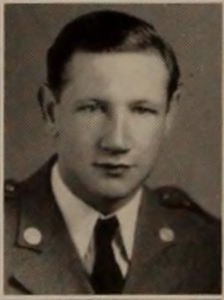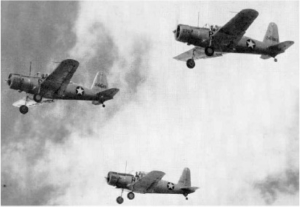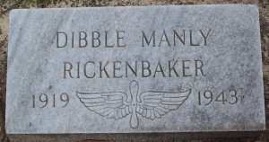Scroll of Honor – Dibble Manly Rickenbaker
First to Fall
Written by: Kelly Durhan
Dibble Manly Rickenbaker of Summerton followed his older brother to  Clemson in the fall of 1940. Tourie was a year ahead of the younger Rickenbaker and would graduate in 1943. Dibble would major in agriculture but would remain at Clemson for only his freshman year. By 1943, Sergeant Dibble Rickenbaker was all the way on the other side of the United States, training at Lemoore Army Airfield in California.
Clemson in the fall of 1940. Tourie was a year ahead of the younger Rickenbaker and would graduate in 1943. Dibble would major in agriculture but would remain at Clemson for only his freshman year. By 1943, Sergeant Dibble Rickenbaker was all the way on the other side of the United States, training at Lemoore Army Airfield in California.
World War II was the first conflict in which control of the air determined ultimate victory. As such, the United States military committed unprecedented resources to the training of pilots, navigators, bombardiers, aerial gunners, and other airmen. Army and Navy airfields sprang up all over the country, especially in areas with good year-round flying weather. Lemoore, about eighty miles north-northwest of Bakersfield, was home to an Army Air Forces grass field used for phase two of the Army’s flight training program.
Army aviation training was divided into phases. Primary training taught aviation cadets the fundamentals of flight with flying time in simple, low-powered airplanes. In phase two, pilots advanced to more complicated aircraft with larger, more powerful engines, adjustable flaps, radios, and navigation equipment. Pilot trainees at the 528th School Squadron at Lemoore  flew the Vultee BT-13, a two-seat aircraft with a 450 horsepower engine and a two-position propeller. Unlike the primary training aircraft, the BT-13 was capable of high speeds of up to 180 miles per hour. The higher-powered, more complex aircraft prepared flyers for the front-line combat aircraft they would master in the later phases of training.
flew the Vultee BT-13, a two-seat aircraft with a 450 horsepower engine and a two-position propeller. Unlike the primary training aircraft, the BT-13 was capable of high speeds of up to 180 miles per hour. The higher-powered, more complex aircraft prepared flyers for the front-line combat aircraft they would master in the later phases of training.
On July 9, 1943, Sergeant Rickenbaker boarded a BT-13 for a routine proficiency flight with pilot Second Lieutenant Ralph R. Ellis at the controls. The aircraft was probably flying in a formation with other BT-13s because witnesses stated that the plane was flying straight and going “fairly slow” when it stalled and fell into a spin. Ellis was unable to recover from the spin and the airplane made “9 or 10 more turns before crashing into the ground.” Both Ellis and Rickenbaker were killed.
Dibble Rickenbaker was survived by his parents and his older brother, Tourie. He was Summerton’s first casualty of the war. Sadly, he would not be the last. Tourie would be killed in action in February 1945 while fighting in Germany.
For more information about Sergeant Dibble Manly Rickenbaker see:
https://soh.alumni.clemson.edu/scroll/dibble-manly-rickenbaker/
For additional information about Clemson University’s Scroll of Honor visit:
